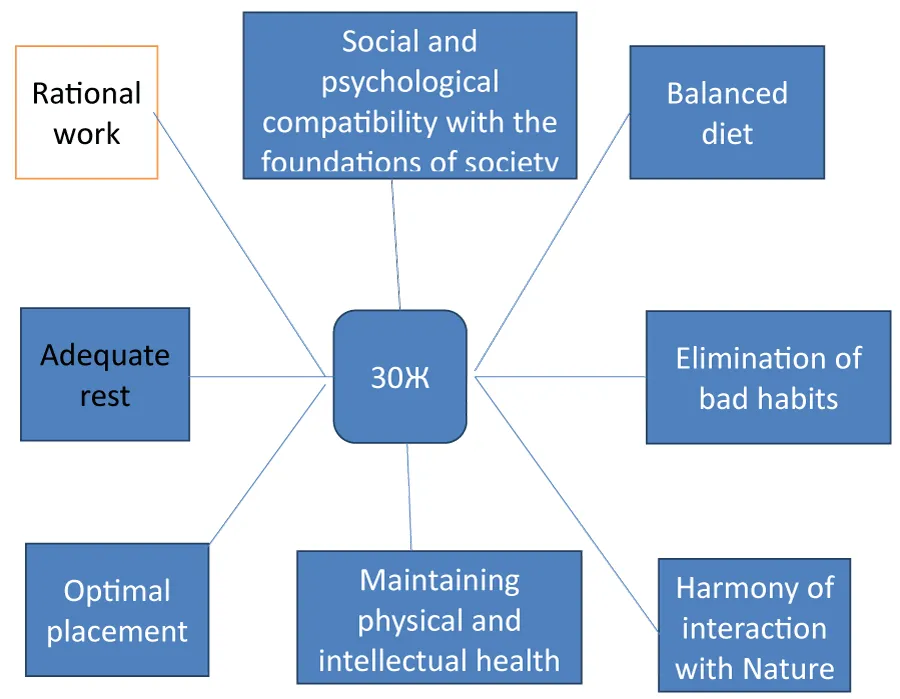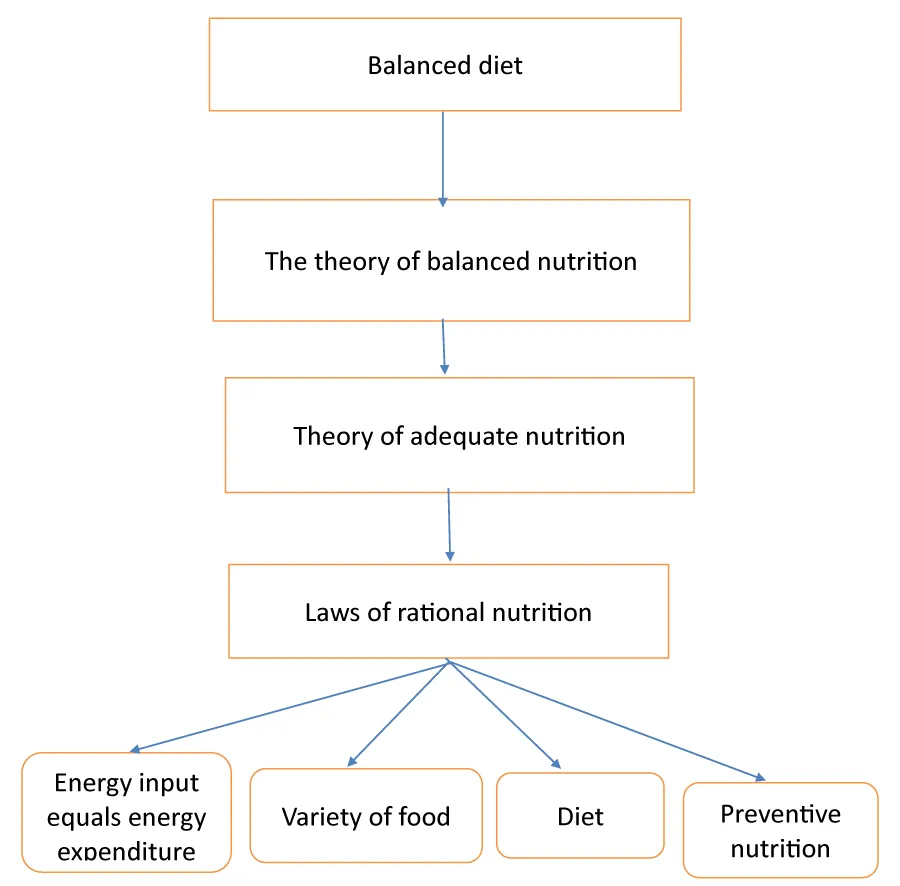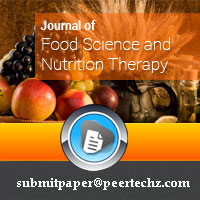Journal of Food Science and Nutrition Therapy
Analyzing human diet caloric content and its implications for sustainable development
Olga Dekker*
Cite this as
Dekker O (2024) Analyzing human diet caloric content and its implications for sustainable development. J Food Sci Nutr The 10(1): 009-012. DOI: 10.17352/jfsnt.000046Copyright
© 2024 Dekker O. This is an open-access article distributed under the terms of the Creative Commons Attribution License, which permits unrestricted use, distribution, and reproduction in any medium, provided the original author and source are credited.This study delves into the significance of caloric content in the human diet, identified as a key contributor to human health and wellbeing. We explore the concept of caloric content not only in its direct impact on physical development but also in its broader role in enhancing public health and quality of life. Emphasizing nutrition as a pivotal factor, our research offers insights into how caloric intake shapes overall health outcomes and life quality. The findings highlight the intricate link between diet and sustainable health practices, underscoring the need for a comprehensive understanding of nutritional values in public health discourse.
Modern medicine redefines health as a comprehensive state, encompassing not just the absence of disease, but a complete state of physical, mental, and social wellbeing. This perspective underlines that health transcends mere physical conditions, incorporating mental and societal aspects. The evolving field of hygiene science further asserts that health is intrinsically linked to individual lifestyle choices. Consequently, it is widely acknowledged that both individual behaviors and societal norms play a pivotal role in shaping population health, promoting health maintenance, and fostering its advancement. Central to this concept of a healthy lifestyle is the culture of nutrition, which directly impacts the aforementioned dimensions of health [1]. This study specifically focuses on the integral role of caloric content within nutritional practices, exploring its vital impact on overall health and its broader implications for sustainable development.
Figure 1 illustrates key components of a healthy lifestyle, centering on a balanced diet. Nutrition, a vital physiological need, is fundamental for human growth and body development. A correct and balanced diet, rich in appropriate caloric content, is crucial for maintaining health. It not only supports normal growth but also plays a pivotal role in disease prevention, enhancing life expectancy, and sustaining organ and system function over time. This highlights the importance of caloric balance in diet for overall health and well-being [2,3].
The schematic diagram in Figure 2 outlines the fundamental principles of rational nutrition, emphasizing the concept of caloric content. Caloric content, or the energy value of consumed food, is crucial for determining the energy supplied to the body. It’s essential for developing a balanced diet and maintaining a healthy lifestyle. Effective calorie counting techniques, widely discussed in contemporary literature, play a key role in dietary planning. A common mistake in diets without calorie counting is the inadvertent consumption of high-calorie foods, which can disrupt nutritional balance [4]. This underscores the importance of calorie awareness in dietary choices.
In understanding caloric intake, it’s crucial to recognize its fundamental role in various vital processes such as respiration, blood circulation, and physical movement. Calories supply energy to each organ and system, facilitating their functionality. Basic metabolism, representing the minimal energy expenditure in a restful, fasting state, largely dictates our caloric needs [5,6]. However, this need is not one-size-fits-all; it varies significantly based on individual factors like weight, age, height, occupation, and physical activity levels. The caloric value of a diet comprises elements like basic metabolism (about 70%), physical activity (around 20%), and the thermal effect of food (approximately 10%). This value is ultimately determined by the energy contributions of proteins, fats, and carbohydrates. Understanding these nuances is key in evaluating dietary choices and their impact on health and sustainability.
The caloric content of different macronutrients plays a crucial role in nutritional science. Specifically, the energy yield of proteins, carbohydrates, and fats is markedly different: 1 gram of protein or carbohydrate yields approximately 4 kcal, whereas 1 gram of fat releases about 9 kcal. This distinction underscores the importance of not only the energy value but also the quality and composition of the food consumed [7]. Modern nutritional understanding goes beyond mere calorie counting, emphasizing the balanced intake of proteins, fats, and carbohydrates. This balance is essential, as foods with equivalent caloric values can have different impacts on the body due to varying nutrient ratios. The caloric requirement is thus tailored to each individual’s physiological traits and goals, such as weight management, considering factors like basal metabolic rate and daily physical activity. This personalized approach is vital for effective dietary planning and achieving specific health objectives.
Healthy weight loss necessitates a balance of proteins, fats, and carbohydrates, complemented by regular physical activity. Adequate nutrition should be maintained, with meal frequency tailored to the individual’s daily schedule, ideally spacing meals 3-4 hours apart. This manuscript introduces a method developed by the author, which is grounded in the physiological processes of the body. This method synthesizes findings from relevant literature with personal practice and experience, offering a comprehensive approach to diet and weight management.
Rise → *Water 400 ml* → *Breakfast* (first hour after awakening): protein part ~ 100-150 g; carbohydrate part ~ 100 g; fat part ~ 20 g; drink ~ 150 ml (if it is coffee or strong tea to the volume of water + 150 ml of water).
*Interval 3-4 hours* (after 1.5 hours you can start drinking no more than 170 ml of water, drink the rest before the next meal) → *Water 400 ml* →
*Lunch*: protein portion ~ 100-150 g; carbohydrate portion (dark cereal ~ 80 g, salad ~ 120 g); fat portion ~ 10 g.
*Interval 3-4 hours* (after 1.5 hours you can start drinking no more than 170 ml of water, drink the rest before the next meal) → *Water 400 ml
*Lunch*: protein part ~ 100-50 g; carbohydrate part ~ 100 g; fat part ~ 20 g.
Drink ~ 150 ml (if it is coffee or strong tea to the volume of water + 150 ml of water).
*Interval 3-4 hours* (after 1.5 hours you can start drinking no more than 170 ml of water, drink the rest before the next meal) → *Water 400 ml*
*Dinner* (2 h before bedtime): protein part ~ 100 -150 g; carbohydrate part (dark cereal ~ 80 g, salad ~ 120 g); fat part ~ 10 g. *Overnight*: fiber 250 ml.
For effective weight management and body composition, it is crucial to balance caloric intake with daily energy expenditure. Maintaining current weight requires consuming calories equal to the energy used each day. Conversely, for gaining muscle mass, intake should exceed daily energy expenditure [8]. This goal should be complemented with strength training, adhering to a specific regimen. It is also important to understand the role of protein in weight gain. High-quality protein is essential, as it constitutes a major component of muscle-building.
Proteins play a key role, especially in muscle formation and the functionality of systems like circulatory, immune, and hormonal systems. Complete proteins, which contain essential amino acids not produced by the body, are vital [9,10]. These amino acids are obtained only through diet, emphasizing the importance of protein-rich foods like fish, poultry, meat, cottage cheese, and eggs. This highlights that a balanced diet isn’t just about calorie count, but also the quality of nutrients, particularly proteins.
Conclusion
This study specifically focused on the integral role of caloric content within nutritional practices, exploring its vital impact on overall health and its broader implications for sustainable development. In achieving health goals, whether maintaining weight, muscle building, or overall well-being, both caloric intake and nutrient quality are crucial. A personalized approach is vital for effective dietary planning and realizing specific health objectives.
- Brusnikina OA. Human Anatomy and Physiology. Workbook: Textbook. St. Petersburg: Lan. 2018; 144.
- Dobrova E. Modern tables of caloric content of foods. Moscow: Ripol Classic. 2010; 967.
- Nizhegorodtseva OA. Human Anatomy and Physiology. Diary of practical classes: Textbook. St. Petersburg: Lan', 2019; 220.
- Neyman IM. Carcinogens and food products. M.: Medicine. 2001; 152.
- Kapilevich LV. Human Physiology. Sport: Textbook for Applied Bachelor's Degree. Lyubertsy: Yurite. 2016; 141.
- Mezenova OY, Kim IN, Bredikhin SA. Production of smoked food products. - Moscow: Kolos Publisher. 2001; 208.
- Shvyrev AA. Anatomy and physiology of man with the fundamentals of general pathology. Rn/D: Phoenix. 2016; 144.
- Solodkov AS, Solodkov EB, Salahub EB. Human Physiology. General. Sports. Age: Textbook for higher educational institutions of physical culture. - M.: Sovsport, 2012; 620.
- Konyshev VA. All about proper nutrition. Moscow: Olma-press. 2001; 303.
- Tekucheva L. Healthy Lifestyle. Proper nutrition. Moscow: IL, 2014; 445.
Article Alerts
Subscribe to our articles alerts and stay tuned.
 This work is licensed under a Creative Commons Attribution 4.0 International License.
This work is licensed under a Creative Commons Attribution 4.0 International License.




 Save to Mendeley
Save to Mendeley
